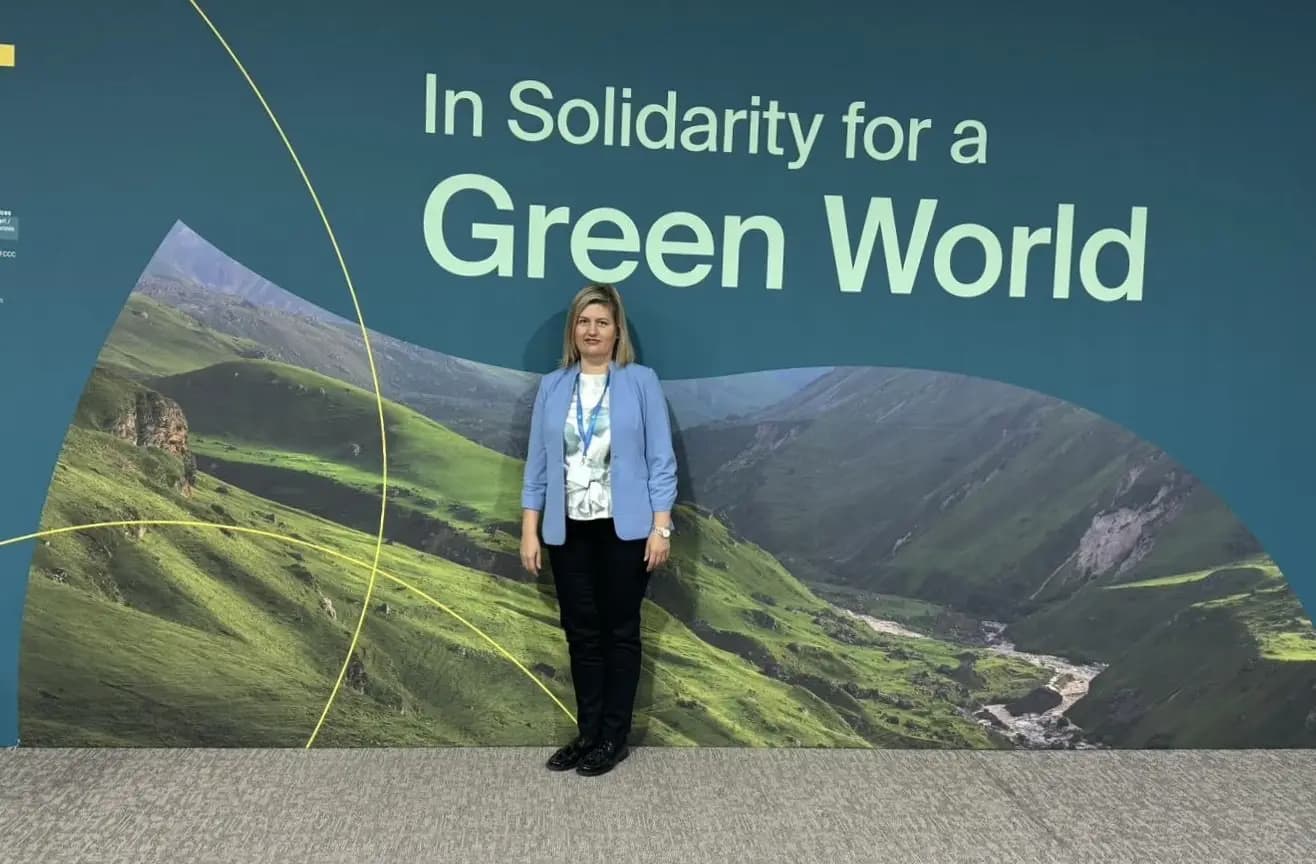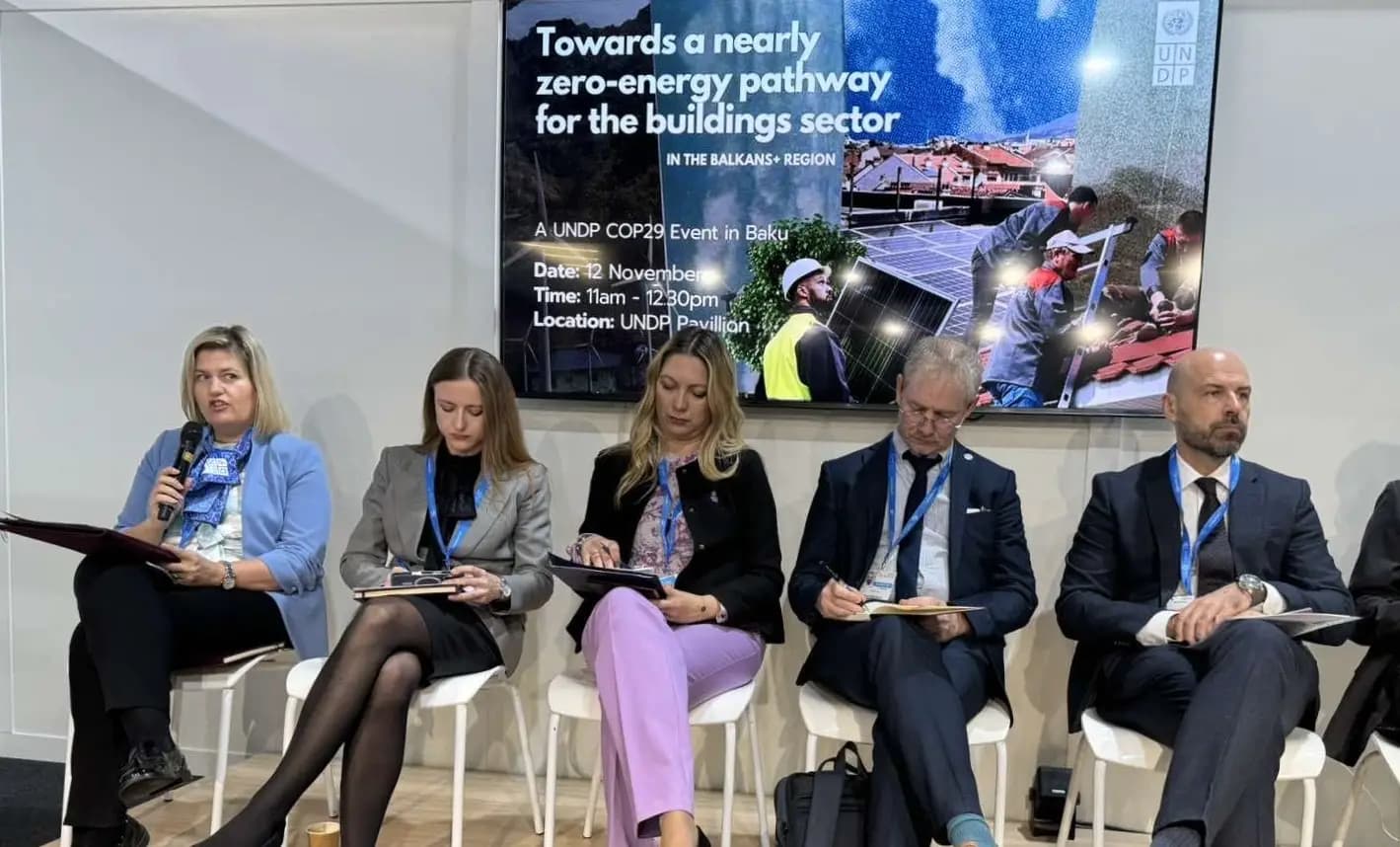The Minister of Energy, Mining and Mineral Resources, Ms. Sanja Bozhinovska, spoke at the panel discussion "The Path to Zero-Energy Buildings in the Wider Balkan Region," held as part of the COP29 Climate Summit in Baku, Azerbaijan. The event is dedicated to exploring the potential of energy efficiency as a key driver of sustainable economic growth and enhanced energy security in the region.
Bozhinovska presented the efforts of the Republic of Macedonia to improve energy efficiency, particularly in the construction sector. She emphasized the importance of the Zero-Energy Buildings (NZEBs) initiative as a fundamental step for the region’s transition toward a low-carbon future. According to her, the recent UNDP roadmap highlights that reaching NZEB standards poses both technical and political challenges requiring urgent resolution.
In her address, Minister Bozhinovska noted:
"Our region, the Balkans, stands at a critical crossroads. With outdated energy infrastructure and a heavy reliance on imported fossil fuels, we face the tangible impacts of climate change: rising temperatures, increased energy poverty, and strain on local economies and communities. The building sector, accounting for over 40% of total energy consumption in the region, is both a challenge and an extraordinary opportunity for transformative change. Alignment with the European Union through the Energy Performance of Buildings Directive is vital for our integration into Europe’s green transition and for energy resilience. For many in the region, the upfront costs of energy-efficient technologies remain a significant barrier, while the lack of harmonized standards and enforcement mechanisms for NZEB presents an additional challenge. Despite progress, achieving full compliance with NZEB standards requires strengthened regulatory frameworks and robust institutional mechanisms.”
Minister Bozhinovska emphasized that for Macedonia, improving energy efficiency in the construction sector is one of the highest priorities of the national climate agenda. Although Macedonia has reached its national target of 30.5% for renewable heating and cooling, there is still a need for targeted technological upgrades to phase out outdated biomass systems.
She also highlighted the commitment of the Republic of North Macedonia to improving energy efficiency through the Energy Efficiency Law, which mandates the development of a long-term renovation strategy for buildings over a ten-year period.
“Our approach includes both new construction and the renovation of existing building stock. According to the Energy Efficiency Law, we are obliged to develop a renovation strategy covering at least ten years. This strategy requires the annual renovation of at least 1% of the total area of public buildings, ensuring compliance with minimum energy efficiency standards.”
Achieving these goals, as the Minister pointed out, depends on the full operationalization of the Energy Efficiency Fund, which is key to financing NZEB projects and renovations.
"The full operationalization of the Energy Efficiency Fund is a priority for realizing Macedonia’s NZEB ambitions. We believe this fund will play a key role in financing the long-term renovation strategy, especially for public and residential buildings to achieve better energy performance. Macedonia remains committed to increasing energy efficiency as a central pillar of its climate strategy. Through regional and international cooperation, we are actively working toward fulfilling the goals set out in the UNDP Roadmap and the Paris Agreement. By enhancing the energy performance of the building sector, we contribute to economic benefits, energy security, and a cleaner environment,” the Minister concluded.
The COP29 Summit, held from November 10 to 15, brings together world leaders, experts, and government representatives to intensify global climate action. Minister Bozhinovska’s participation underscores Macedonia’s commitment to the common goals of a sustainable and low-carbon future.



